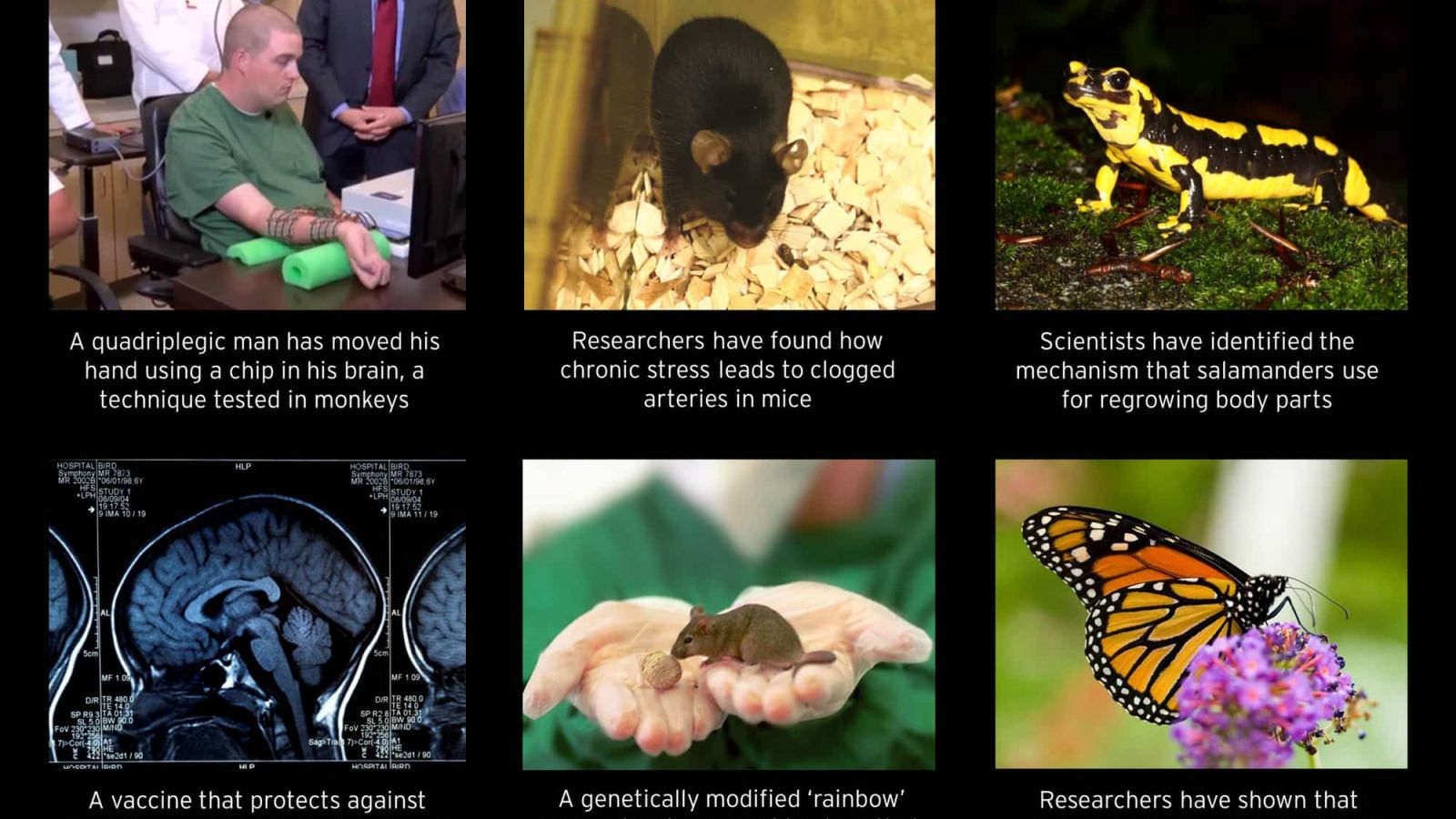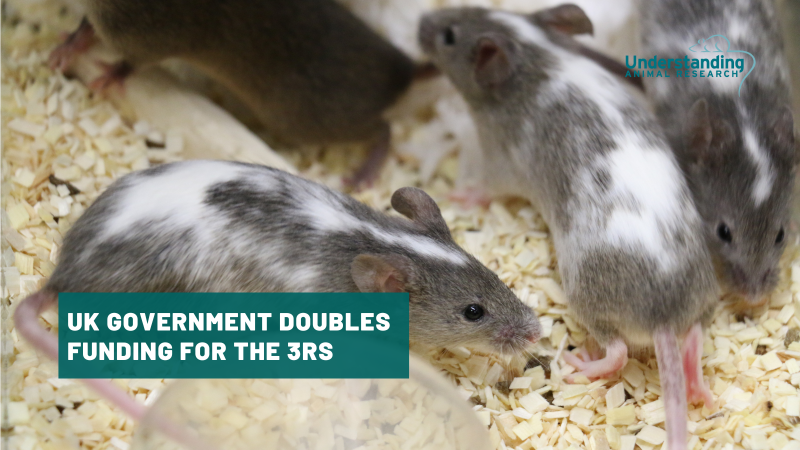A microchip implanted into the brain of a paralysed man has enabled him to move his hand, by translating his thoughts into electrical stimulations. The 0.15 inch ‘Neurobridge’ chip was implanted into Ian Burkhart’s brain, where it acts to bypass electrical signals from the brain around the damage in his spinal cord. Earlier this month researchers from Newcastle University demonstrated that similar technology could restore movement to the hand of a temporarily paralysed monkey.
http://www.independent.co.uk/news/science/a-medical-first-quadriplegic-man-controls-arm-using-a-chip-implanted-in-his-brain-9561255.html
Mice exposed to stressful situations, including tilting their cages, alternating light with darkness and switching mice between isolation and crowded quarters, have increased levels of immune system proteins in their blood that can cause symptoms similar to those of atherosclerosis. During stressful situations the immune system prepares for danger by producing excess leukocytes, which interact with the protein called beta 3 forming atherosclerotic plaques. When scientists blocked the activity of beta 3 the stressed mice showed fewer dangerous plaques.
http://news.sciencemag.org/biology/2014/06/how-stress-can-clog-your-arteries
Researchers have found that the ‘ERK pathway’ must be constantly active for salamander cells to be reprogrammed, and hence able to contribute to the regeneration of different body parts. The team identified a key difference between the activity of this pathway in salamanders and mammals, which helps us to understand why humans can’t regrow limbs and sheds light on how regeneration of human cells can be improved.
http://www.ucl.ac.uk/news/news-articles/0614/200614-salamander-limb-regeneration
A new vaccine developed by researchers in Germany boosts the immune system to protect against brain tumours in mice. With the difficulty of treating brain tumours, the team at the National Center for Tumour Diseases hopes that boosting the body's natural response may offer new opportunities for patients.
http://www.bbc.co.uk/news/health-28013585
Contrary to popular medical opinion, the human kidney is able to regenerate itself according to research using genetically modified mice. The ‘rainbow’ mice give off fluorescent signals in their cells, allowing researchers to pinpoint a specific molecule responsible for renal cellular growth.
http://www.timesofisrael.com/discovery-could-spare-patients-from-kidney-transplant/
The monarch butterfly uses a magnetic compass to guide its extraordinary migration thousands of kilometres across North America. Monarchs are known to possess a Sun compass but even on cloudy days they still keep flying south towards Mexico. In a laboratory experiment, butterflies changed direction when the magnetic field around them was altered.
http://www.bbc.co.uk/news/science-environment-27909303
Last edited: 10 March 2022 21:12




